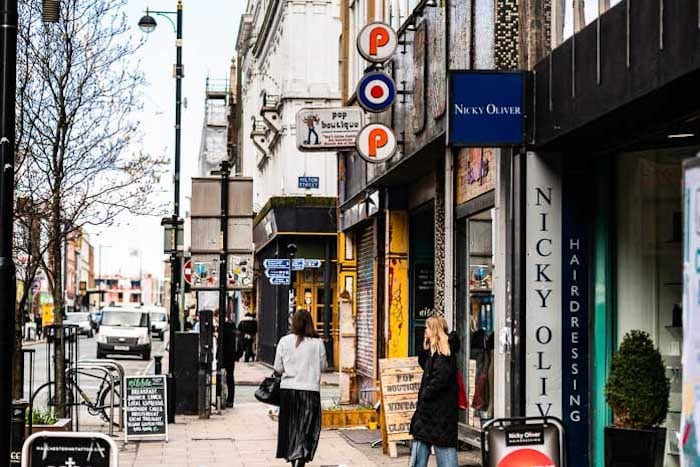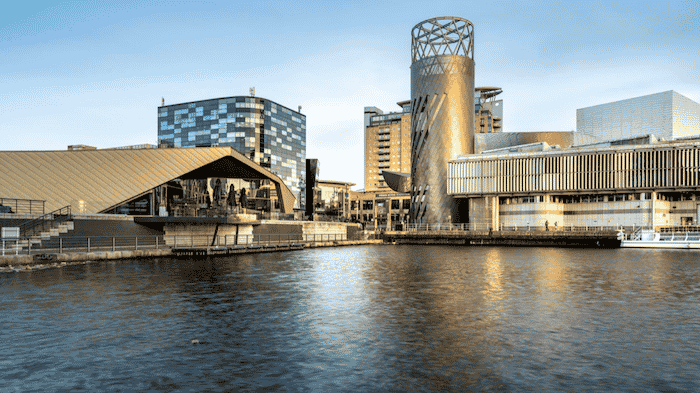Manchester is the top city outside London for attracting students – and keeping them
- Written by Ray King
- Last updated 6 years ago
- City of Manchester, Students

Manchester is the top city in the UK outside London for attracting students – and retaining them after they graduate.
As a result, Manchester “gained” almost 20,000 16 – 21 year olds between 2009 and 2017 according to the study Manchester Brain Drain, jointly researched by the think tank Centre for Cities and the University of Manchester.
Over half (51 per cent) of students from Manchester’s universities choose to remain in the city after graduation – only London has a higher retention rate.
An even greater proportion (57 per cent) of students from Manchester who left the city to study at universities elsewhere in the UK return after graduating – again, second only to London.

But after the age of 30, graduates are more likely to leave the city – mostly to nearby parts of the North West.
Centre for Cities chief executive Andrew Carter said: “The large numbers of graduates choosing to live and work in Manchester after finishing university is a testament to what has been done to boost the city’s economy in the last ten years. Manchester is an exemplar for other cities looking to lay the foundations for economic growth.
“To ensure that Manchester’s growth is maintained, the city’s leaders should continue to prioritise the growth of high-skilled businesses in the centre and delivering housing and infrastructure improvements to accommodate a growing workforce.”
But it’s not just the economy. The study reveals that Manchester gains graduates aged 22-25 from other places despite the fact that the city offers them the fifth lowest starting salary in the country – £20,870.
This suggests graduates are drawn to Manchester by factors other than pay, such as social and cultural attractions. In short, bright young people find the city a cool place to live.

Almost one third (31 per cent) of students at Manchester’s Universities grew up in the city. An additional 16 per cent come from elsewhere in the North West.
Outside of Manchester itself, London is the most common city of origin for students in Manchester. Seven per cent of all of Manchester’s students come from the capital.
Over half (56 per cent) of students from Manchester leave the city to study elsewhere for their degrees. Of these, one third stays in the North West. Leeds is the most popular city for Manchester’s students, drawing in 10 per cent of students leaving Manchester, followed by Preston (nine per cent) and Liverpool (eight per cent).
London is the most popular destination for graduates leaving Manchester to start a career after university. More than 20 per cent of graduates from universities in Manchester who leave to work elsewhere choose London, significantly more than the numbers choosing the second most popular destination – Liverpool (four per cent).

While over half of new graduates living in Manchester work in the public sector, only 16 per cent work in knowledge-intensive private sector professions such as law or accounting. This is a significantly lower proportion than in cities such as London, Edinburgh or Reading.
While graduates continue to move into Manchester throughout their twenties, after thirty they are more likely to leave. But those leaving usually remain within commutable distance of Manchester.
Cheshire East (the local authority covering towns such as Macclesfield, Wilmslow and Crewe) drew in the most people aged between 31 and 45 moving out of Manchester, followed by Rossendale and High Peak.
The study says: “While the trend for older graduates to move out of a city but remain within commutable distance is not uncommon, it is a reminder for Manchester’s city leaders of the need to deliver housing and infrastructure improvements within the city’s boundaries.
“Otherwise, the numbers of skilled workers leaving the city may increase.”
The Centre for Cities defines Manchester in terms of the “primary urban area” comprising the city itself, Bolton, Bury, Oldham, Rochdale, Salford, Stockport, Tameside and Trafford.
- This article was last updated 6 years ago.
- It was first published on 25 March 2019 and is subject to be updated from time to time. Please refresh or return to see the latest version.
Did we miss something? Let us know: press@ilovemanchester.com
Want to be the first to receive all the latest news stories, what’s on and events from the heart of Manchester? Sign up here.
Manchester is a successful city, but many people suffer. I Love Manchester helps raise awareness and funds to help improve the lives and prospects of people across Greater Manchester – and we can’t do it without your help. So please support us with what you can so we can continue to spread the love. Thank you in advance!
An email you’ll love. Subscribe to our newsletter to get the latest news stories delivered direct to your inbox.
Got a story worth sharing?
What’s the story? We are all ears when it comes to positive news and inspiring stories. You can send story ideas to press@ilovemanchester.com
While we can’t guarantee to publish everything, we will always consider any enquiry or idea that promotes:
- Independent new openings
- Human interest
- Not-for-profit organisations
- Community Interest Companies (CiCs) and projects
- Charities and charitable initiatives
- Affordability and offers saving people over 20%
For anything else, don’t hesitate to get in touch with us about advertorials (from £350+VAT) and advertising opportunities: advertise@ilovemanchester.com

Now you can own a piece of TV history and support a much loved NHS Charity

The welcoming Manchester community where board games build friendships

Everything you need to know about the St George’s Day Parade 2025

Best bars and pubs to watch the football and live sport in Manchester

Discotheque Royale vs Piccadilly 21s: which was your favourite 90s Manchester club?















